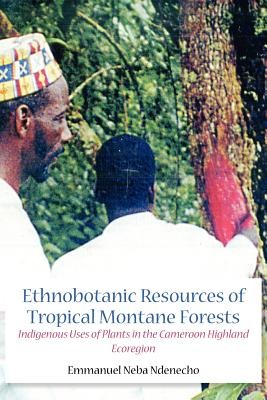
- We will send in 10–14 business days.
- Author: Emmanuel Neba Ndenecho
- Publisher: Langaa RPCID
- Year: 2011
- Pages: 242
- ISBN-10: 9956717304
- ISBN-13: 9789956717309
- Format: 15.6 x 23.4 x 1.3 cm, softcover
- Language: English
- SAVE -10% with code: EXTRA
Ethnobotanic Resources of Tropical Montane Forests. Indigenous Uses of Plants in the Cameroon Highland Ecoregion (e-book) (used book) | bookbook.eu
Reviews
Description
Mountain forests provide important ecological services, and essential products. This book focuses on the importance of mountain forests in Cameroon for the local people who depend most directly on them, and have often developed a wealth of indigenous knowledge on plants and sophisticated institutions for managing limited plant and animal resources. Such knowledge and institutions have often been threatened, or even destroyed, by centralization and globalization; yet there is increasing recognition that community-based institutions are the best adapted to ensuring that mountain forests continue to supply their diverse goods and services to both mountain and other people over the long-term. The book provides a useful combination of case studies on ethnobotanic analysis and cultural values of plants, community-based ecological planning for protected area management and eco-cultural tourism development. It provides an unusually useful combination of overviews and synthesis of theory and experience with in-depth case studies of montane forest-adjacent communities and protected areas. Throughout the book there are good summary tables, case study maps, and diagrams that are relevant to the themes in question. Finally, the book addresses the possible mutual benefits of indigenous knowledge and modern science, indigenous peoples and the development of eco-cultural tourism in protected areas, indigenous peoples and ecological planning in protected areas. It therefore emphasizes cooperation based on partnerships amongst indigenous people, governments and the global conservation community, in the interest of effective conservation. This is a valuable book for land managers, environmental scientists, environmental biologists, natural resource managers and students reading subjects such as geography, biology, forestry, botany and environmental science.
EXTRA 10 % discount with code: EXTRA
The promotion ends in 19d.15:02:44
The discount code is valid when purchasing from 10 €. Discounts do not stack.
- Author: Emmanuel Neba Ndenecho
- Publisher: Langaa RPCID
- Year: 2011
- Pages: 242
- ISBN-10: 9956717304
- ISBN-13: 9789956717309
- Format: 15.6 x 23.4 x 1.3 cm, softcover
- Language: English English
Mountain forests provide important ecological services, and essential products. This book focuses on the importance of mountain forests in Cameroon for the local people who depend most directly on them, and have often developed a wealth of indigenous knowledge on plants and sophisticated institutions for managing limited plant and animal resources. Such knowledge and institutions have often been threatened, or even destroyed, by centralization and globalization; yet there is increasing recognition that community-based institutions are the best adapted to ensuring that mountain forests continue to supply their diverse goods and services to both mountain and other people over the long-term. The book provides a useful combination of case studies on ethnobotanic analysis and cultural values of plants, community-based ecological planning for protected area management and eco-cultural tourism development. It provides an unusually useful combination of overviews and synthesis of theory and experience with in-depth case studies of montane forest-adjacent communities and protected areas. Throughout the book there are good summary tables, case study maps, and diagrams that are relevant to the themes in question. Finally, the book addresses the possible mutual benefits of indigenous knowledge and modern science, indigenous peoples and the development of eco-cultural tourism in protected areas, indigenous peoples and ecological planning in protected areas. It therefore emphasizes cooperation based on partnerships amongst indigenous people, governments and the global conservation community, in the interest of effective conservation. This is a valuable book for land managers, environmental scientists, environmental biologists, natural resource managers and students reading subjects such as geography, biology, forestry, botany and environmental science.


Reviews